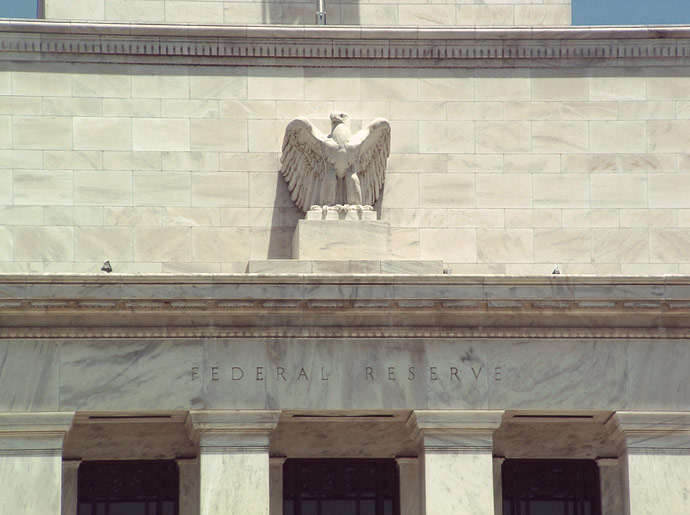Federal Reserve Expected To Announce Tapering Of Bond Buying This Week

Image via Flickr/ rlinger
With the Syria crises hanging over the markets like the Sword of Damocles, the Federal Reserve is expected to announce that it will begin tapering its $85 billion monthly bond buying spree this week. Chairman Ben Bernanke and company have scheduled a two day meeting (which will end on Wednesday) to discuss their options. Economists reckon that initially there may be a $10 to $15 billion dollar cut, but that is more than enough to send the message that the Fed is moving towards a more normal economy with normalization of rates across the board.
The Fed initiated the latest bout of quantitative easing in answer to concerns about the dreaded fiscal cliff, which was expected to kick in at the end of 2012 along with Europe’s sovereign debt crisis. Those crises have long passed, but now traders are scrutinizing talks in Congress on a budget solution and the debt ceiling as new sources of potential crisis that could crop up sooner rather than later.
While the Fed meeting tops the list of what will certainly affect the economy this week, Congressional budget wrangling and developments on Syria will also combine to put major pressure on the markets. Stocks could feel some pain if the Fed’s rhetoric is not successful in assuaging the well founded fears of a jittery Wall Street. As a result, Chairman Bernanke is expected to choose his words wisely in conveying the Fed’s message on Wednesday. On the off chance that the Fed does not make the decision to begin tapering at this meeting, it is expected to do so soon. Few experts see it holding back from beginning the process this fall.
Perhaps of equal interest to the markets is that, for the first time, the Fed will forecast its rate guidance for 2016. Indications are that it expects to start raising the target rate for overnight lending between banks, in 2015. Officials have repetitively assured markets they do not intend to hasten to raise short-term rates, which affects a whole range of consumer loans from credit cards to mortgages.
The bottom line is that it is becoming clear that efforts to manage the economy with monetary policy are hitting a solid brick wall and these programs are at a point where they offer diminished returns. Focusing on fiscal policy is the key to a continuous U.S. recovery. The good news is that the Fed seems to understand and is hopefully acting this week to address the issue.









































